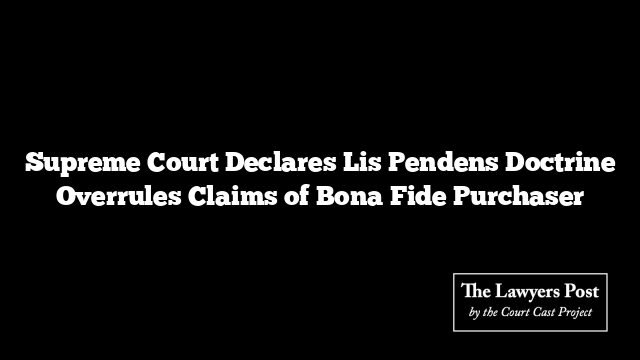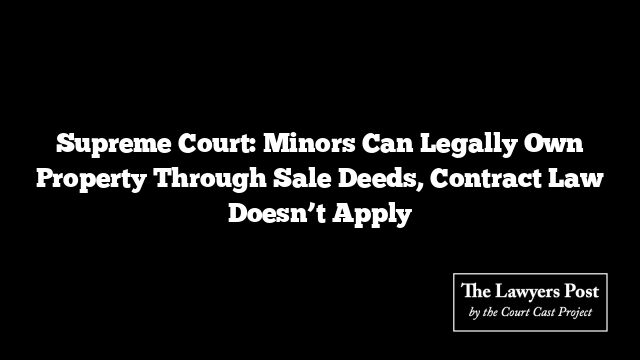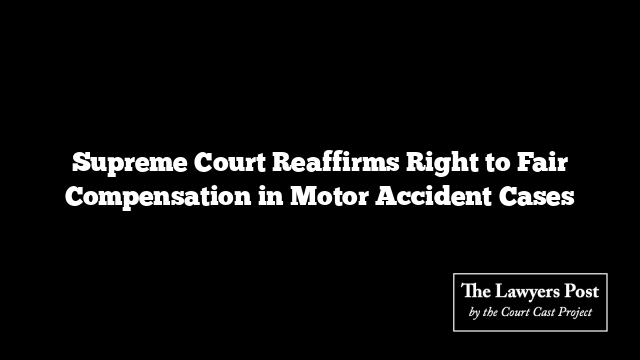In a significant ruling, the Supreme Court has clarified that once a transaction is impacted by the doctrine of lis pendens, claims of being a bona fide purchaser or lacking knowledge of a sale agreement offer no valid defense. This determination emerged from a case where a high court’s order for specific performance of a sale agreement was challenged due to a later executed sale deed during ongoing litigation.
A bench led by Justices Hrishikesh Roy and Pankaj Mithal scrutinized an appeal involving a sale agreement made on August 17, 1990. The plaintiff sought specific performance of the agreement in December 1992, but the defendant contested the validity of the contract. Notably, during the trial, another party, defendant no. 2, claimed to have purchased the property on January 8, 1993, asserting he was a bona fide purchaser unaware of the existing agreement.
The trial court acknowledged the legitimacy of the sale agreement but refrained from enforcing it due to the competing sale deed. It determined that defendant no. 2 had acted in good faith and without notice of the plaintiff’s claim, opting instead to allow recovery of the advance payment. However, the First Appellate Court described the original agreement as collusive, siding against the decree for specific performance.
Contrarily, the High Court ruled in favor of enforcing the agreement, emphasizing that defendant no. 2 could not genuinely claim bona fide status, given the timing of the transaction relative to the court proceedings and the shared village residence with the plaintiff.
Defendant no. 2 contested this ruling in the Supreme Court. The Supreme Court criticized the First Appellate Court’s conclusion of collusion, noting it was made without a cross-appeal from the defendants, thereby invalidating its findings against the original agreement.
In its analysis, the Court reinforced established precedents concerning the doctrine of lis pendens, underscoring that this principle governs all transactions amid ongoing litigation, regardless of the buyer’s knowledge. Notable cases highlighted include Usha Sinha vs. Dina Ram, which affirmed that such principles apply irrespective of notice, and Sanjay Verma vs. Manik Roy, which maintained that a transferee is bound by the outcome of a suit as if they were a party themselves.
Ultimately, the Court concluded that since the initial sale agreement was proven valid and the subsequent transaction occurred while the case was pending, the High Court acted rightly in overturning the earlier judgments and ordering specific performance of the agreement. The judgment serves as a clear reminder that the doctrine of lis pendens prevails, negating claims of good faith in real estate transactions conducted during litigation.





